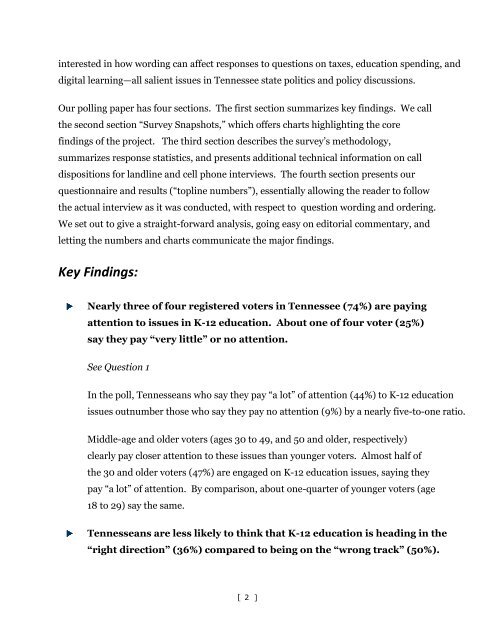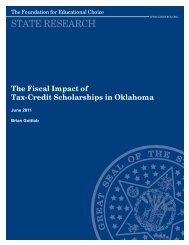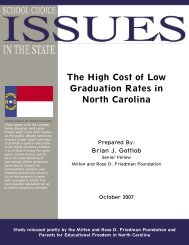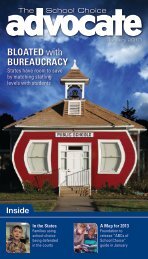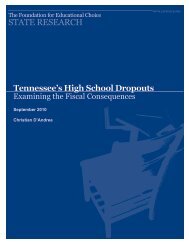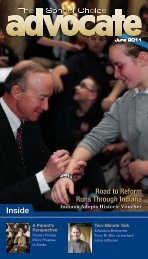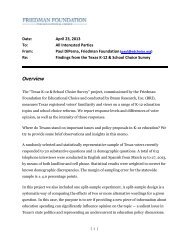Survey Memo - The Friedman Foundation For Educational Choice
Survey Memo - The Friedman Foundation For Educational Choice
Survey Memo - The Friedman Foundation For Educational Choice
Create successful ePaper yourself
Turn your PDF publications into a flip-book with our unique Google optimized e-Paper software.
interested in how wording can affect responses to questions on taxes, education spending, and<br />
digital learning—all salient issues in Tennessee state politics and policy discussions.<br />
Our polling paper has four sections. <strong>The</strong> first section summarizes key findings. We call<br />
the second section “<strong>Survey</strong> Snapshots,” which offers charts highlighting the core<br />
findings of the project. <strong>The</strong> third section describes the survey’s methodology,<br />
summarizes response statistics, and presents additional technical information on call<br />
dispositions for landline and cell phone interviews. <strong>The</strong> fourth section presents our<br />
questionnaire and results (“topline numbers”), essentially allowing the reader to follow<br />
the actual interview as it was conducted, with respect to question wording and ordering.<br />
We set out to give a straight-forward analysis, going easy on editorial commentary, and<br />
letting the numbers and charts communicate the major findings.<br />
Key Findings:<br />
Nearly three of four registered voters in Tennessee (74%) are paying<br />
attention to issues in K-12 education. About one of four voter (25%)<br />
say they pay “very little” or no attention.<br />
See Question 1<br />
In the poll, Tennesseans who say they pay “a lot” of attention (44%) to K-12 education<br />
issues outnumber those who say they pay no attention (9%) by a nearly five-to-one ratio.<br />
Middle-age and older voters (ages 30 to 49, and 50 and older, respectively)<br />
clearly pay closer attention to these issues than younger voters. Almost half of<br />
the 30 and older voters (47%) are engaged on K-12 education issues, saying they<br />
pay “a lot” of attention. By comparison, about one-quarter of younger voters (age<br />
18 to 29) say the same.<br />
Tennesseans are less likely to think that K-12 education is heading in the<br />
“right direction” (36%) compared to being on the “wrong track” (50%).<br />
[ 2 ]


